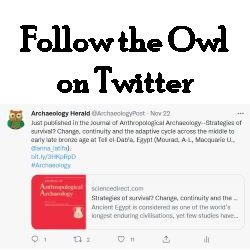Gerald Holton has won the BBVA Foundation Frontiers of Knowledge Award in the Humanities category “for his numerous seminal contributions to the history of 19th- and 20th-century science, in which he has shown a special sensitivity to cultural, philosophical, and sociological and gender contexts,” said the committee in its citation.
Holton, it continued, has developed “a reasoned analysis of the complex phenomenon of anti-science, and its role in totalitarianism.”
The citation also refered to “his innovative contributions to science education, his decisive role in the preservation of Albert Einstein’s documentary legacy, and his studies into the fate of children forced to flee Nazi Germany.”
Holton, a professor of Physics and History of Science at Harvard University, is a well-known figure in the study of how science shapes a society’s culture and the ways in which the cultural matrix of each historical period intimately conditions the practice of science by informing the elaboration of theories and models.
Science shapes culture and vice versa
The new laureate explained that he has sought to show in his work “how science is infused with its background, instead of treating it as if it had come down from heaven all by itself.” His way of practicing science history is to place the focus on its conceptual and cultural dimension. “Science,” he once wrote, “should treasure its history and historical scholarship should treasure science.”
Holton was born in Berlin in 1922. The rise of Nazism forced his family to move to Vienna, where he spent most of his childhood and adolescence. At age 16, he found himself fleeing once more after Austria was annexed, first to the U.K. and two years later to the U.S., which became his home and where he has spent his entire academic career.
Holton’s work upholds the role of science in shaping the culture of each age, without ever falling into scientificism, the belief that beyond scientific language lie only irrationality and meaningless. On the contrary, he argues that many fields, art and literature among them, are instrumental in giving form and content to a society’s culture. He sees science, however, as an essential civilizing force, contributing not only to economic growth and societal welfare but also, at a deeper level, to the configuration of modes of thinking, decision-making, and behavior in each time period, on both the individual and collective plane.
The pillars of science – he reminds us – are truthfulness, objectivity and the generation of knowledge that is not immutable but subject to scrutiny by others, and therefore always subject to revision in the light of new evidence or more elegant and general conceptual models. So as well as health, economic growth, and technological efficiency, science fosters rationality and thus adds to society’s ability to solve its problems. Yet his work has also shown how science itself does not develop in a capsule, isolated from the cultural (not just socioeconomic) fabric, but rather permeates through it in breadth and depth.
Or as Holton puts it, “science is part of a tapestry, it is woven into a culture.”
The physicist, historian, and now Frontiers of Knowledge Laureate in Humanities was one of the first voices calling for an urgent and imperative effort to relay scientific culture to the general population, a cause he has advocated for over half a century in a way that is both perceptive and respectful of other sources of general culture. And not just because of the immediate utility of technoscientific knowledge, but of how scientific thought can aid in cognitive orientation, and the construction and development of society’s mental maps or mindset.
Humanities committee and evaluation support panel
The committee in this category was chaired by Carmen Iglesias, Director of the Real Academia de Historia, with José Manuel Sánchez Ron, numbered member of the Real Academia Española and Emeritus Professor of History of Science at the Universidad Autónoma de Madrid acting as secretary. Remaining members were Ignacio Bosque, numbered member of the Real Academia Española and Emeritus Professor of Spanish at the Universidad Complutense de Madrid; Isabel Burdiel, Professor of Contemporary History at the University of Valencia; Violeta Demonte, Emeritus Professor of Spanish at the Universidad Autónoma de Madrid; and José María Fernández Cardo, Professor of French at the University of Oviedo.
The evaluation support panel of the Spanish National Research Council (CSIC) was coordinated by M. Victoria Moreno, the Council’s Deputy Vice President for Scientific and Technical Areas, and formed by: Jon Arrizabalaga Valbuena, research professor at the Mila i Fontanals Institution (IMF); Esther Hernández Hernández, scientific researcher at the Institute of Language, Literature, and Anthropology (ILLA); Ignacio Montero Ruíz, Deputy Coordinator of the Global Society Area and scientific researcher at the Institute of History (IH); Consuelo Naranjo Orovio, research professor at the Institute of History (IH); and Fernando Rodríguez Mediano, scientific researcher at the Institute of Languages and Cultures of the Mediterranean and the Near East (ILC).




